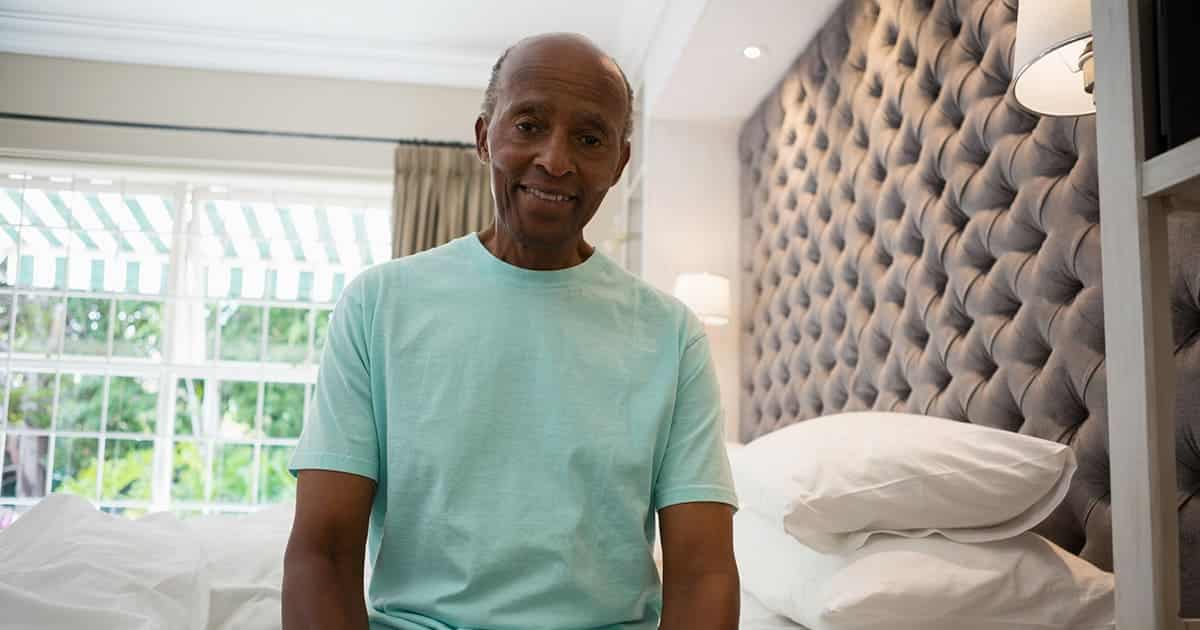
Rip Van Winkle didn’t have any problems getting a good night’s sleep. But that’s not the case for many older adults. A poor diet, lack of routine, or the wrong sleeping environment can make it difficult for some seniors to get the restorative shut-eye they need.
That’s where a well-designed assisted living setting can make a big difference, offering the crucial ingredients for a restful slumber.
Sound Sleep: Important for the Health of Older Adults
We spend much of our lives asleep, yet we often don’t realize what is going on inside our bodies while we do so. While we sleep, our brains slow down and recover, benefitting our concentration, energy levels, thinking and mood. This helps us be ready for whatever is coming the next day. In addition, sleep is important for a healthy immune system, regulating hormones, and muscle relaxation.
According to National Institute on Aging, older adults need about 7 to 9 hours of sleep each night. However, as we age, we often go to sleep earlier and get up earlier than when we were younger. Pain can also interfere with sleep, as well as some medicines.
What happens when older adults don’t get enough sleep?
- They might feel sluggish
- They have a tendency to be irritable and in a bad mood
- They might feel a bit down
- They could be more prone to falls or accidents
- They are more apt to be forgetful
- Over time, lack of sleep can increase the risk of cardiovascular disease, high blood pressure, depression and obesity
Tips for Helping Older Adults Sleep Better
• Follow a regular bedtime schedule. Going to bed and getting up at about the same time each day is very helpful. Residents in independent living benefit from assistance with preparing for bed when needed at a predictable time, as well as the knowledge that breakfast is just down the hall and friends will be there to greet them, motivating each person to rise and shine on time.
- Eat healthy food at consistent times. Sugary or high-fat foods can cause digestive issues and disrupt sleep patterns. A regular schedule of nutritious and appetizing foods, such as are served in an assisted living setting, can help ease older adults into sleep. In addition, it’s important to not eat a large amount of food too close to bedtime.
- Skip the late afternoon nap. While a brief morning or midday nap can be restorative, it’s best to avoid doing so late in the afternoon or evening. Older adults living on their own might be tempted to do so simply out of boredom. In assisted living, with friends close by and a busy activities calendar, a person is much less likely to nap late in the day.
- Exercise daily. Just sitting is bad for any person. In fact, the Mayo Clinic reports that sitting for too long can increase blood pressure, unhealthy cholesterol levels and result in obesity. But exercising not only can improve overall health, it raises the core body temperature, which signals the body to be awake. Then after about 90 minutes, the core body temperature falls, and that leads to sleepiness. The key is to not exercise within three hours of bedtime to avoid sleep problems.
In assisted living, residents have many opportunities for staying active and exercising, from fitness classes to walking clubs to gardening to special outings.
- Create a safe and soothing sleep environment. It’s important for older adults to wind down and relax a bit before heading to bed. This can include using low lighting, turning off interruptive devices such as a television or computer, and making sure the room temperature is comfortable. Quiet is important as well. In assisted living, residents follow a routine of preparing to sleep that includes a helping hand if needed, as well as the peace of mind of an ambiance that both relaxes and reassures.
An exceptional lifestyle, with seamless access to future care options. Download our free guide, A Guide to Living Well During Retirement in Palm Harbor, Florida. Or contact us today.



















